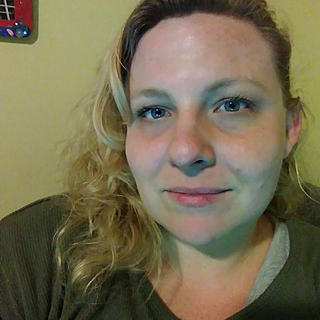Unveiling the Past: Truth Seekers Unite with Forgotten Foundations
- Heather Whitmore
- May 14
- 5 min read
In a world filled with noise and distractions, many of us yearn for a deeper connection to our roots. We seek the stories that shaped our communities and the truths that have been lost over time. This quest for understanding is not just a personal journey; it is a collective movement. Truth seekers are uniting to explore forgotten foundations, uncovering the rich tapestry of history that lies beneath our feet.
This blog post will take you on a journey through the importance of uncovering our past, the role of truth seekers, and how we can all contribute to this vital mission.
The Importance of History
History is more than just dates and events. It is the story of who we are. Understanding our past helps us make sense of our present and guides us toward a better future.
Cultural Identity: Our history shapes our cultural identity. It influences our traditions, values, and beliefs.
Lessons Learned: History teaches us valuable lessons. By studying past mistakes, we can avoid repeating them.
Community Connection: Knowing the history of our community fosters a sense of belonging. It connects us to those who came before us and those who will come after.
When we forget our history, we risk losing our identity. This is why truth seekers are so important. They work tirelessly to uncover the stories that have been buried or overlooked.
Who Are the Truth Seekers?
Truth seekers come from all walks of life. They are historians, archaeologists, writers, and everyday people with a passion for discovery.
Historians: These individuals study the past through documents, artifacts, and oral histories. They help us understand the context of events and the people involved.
Archaeologists: They dig into the earth to uncover physical evidence of past civilizations. Their work reveals how people lived, what they valued, and how they interacted with their environment.
Community Activists: Many truth seekers are local activists who work to preserve historical sites and promote awareness of their community's history.
Everyday People: Anyone can be a truth seeker. Whether it is through family research, local history projects, or simply asking questions, everyone has a role to play.
Truth seekers unite in their mission to bring forgotten stories to light. They believe that every story matters, no matter how small.
The Role of Forgotten Foundations
Forgotten foundations are the physical remnants of our past. They can be buildings, monuments, or even landscapes that hold historical significance.
Preservation: Many truth seekers focus on preserving these foundations. They understand that these sites are not just relics; they are vital links to our history.
Education: Forgotten foundations serve as educational tools. They provide tangible connections to the past, allowing us to learn in a hands-on way.
Community Engagement: These sites often become focal points for community engagement. They can host events, workshops, and discussions that bring people together.
By recognizing the importance of forgotten foundations, we can ensure that they are not lost to time.
How to Get Involved
If you feel inspired to join the ranks of truth seekers, there are many ways to get involved.
Research: Start by researching your own family history. Talk to relatives, gather documents, and explore local archives.
Volunteer: Many historical societies and preservation groups welcome volunteers. You can help with events, research, or even restoration projects.
Attend Events: Look for local history events, lectures, or workshops. These gatherings are great opportunities to learn and meet like-minded individuals.
Share Your Findings: If you uncover something interesting, share it with your community. Write articles, start a blog, or give presentations.
Support Local Initiatives: Many communities have initiatives aimed at preserving local history. Support these efforts through donations or participation.
Every small action contributes to the larger goal of uncovering and preserving our history.
The Power of Storytelling
At the heart of the truth-seeking movement is storytelling. Stories have the power to connect us, inspire us, and teach us.
Personal Narratives: Sharing personal stories can help others relate to historical events. It brings history to life in a way that facts alone cannot.
Community Stories: Every community has its own unique stories. By sharing these narratives, we can foster a sense of pride and belonging.
Creative Expression: Storytelling can take many forms, from writing and art to performance. Embracing creativity can help us express our connection to the past.
When we tell stories, we keep history alive. We ensure that the voices of those who came before us are heard and remembered.
Challenges Faced by Truth Seekers
While the mission of truth seekers is noble, it is not without challenges.
Access to Resources: Many truth seekers struggle to access historical documents or artifacts. Funding for research and preservation can also be limited.
Public Interest: Sometimes, the public may not see the value in preserving history. It can be challenging to engage people who are more focused on the present.
Time Constraints: Many truth seekers juggle their passion with other responsibilities. Finding time to dedicate to research and preservation can be difficult.
Despite these challenges, truth seekers remain committed to their mission. Their passion and determination drive them to overcome obstacles and continue their work.
Celebrating Success Stories
There are many inspiring success stories within the truth-seeking community.
Local History Projects: Many towns have successfully launched local history projects that engage residents and preserve their heritage. These projects often result in community pride and increased awareness of local history.
Restoration Efforts: Some truth seekers have led efforts to restore forgotten buildings or landmarks. These restorations not only preserve history but also revitalize communities.
Educational Programs: Schools and organizations have developed educational programs that teach students about local history. These programs foster a sense of connection and responsibility toward preserving the past.
These success stories remind us of the impact that truth seekers can have. They show that with dedication and collaboration, we can make a difference.
The Future of Truth Seeking
As we look to the future, the role of truth seekers will only become more important.
Digital Archives: The rise of technology has made it easier to access historical documents and share findings. Digital archives can help preserve history for future generations.
Community Collaboration: More communities are recognizing the value of their history. Collaborative efforts between local organizations, schools, and residents can lead to meaningful preservation initiatives.
Global Connections: The internet allows truth seekers to connect with others around the world. Sharing knowledge and resources can enhance our understanding of history on a global scale.
The future is bright for truth seekers. As more people become aware of the importance of history, the movement will continue to grow.
Join the Movement
If you feel inspired to uncover the past, now is the time to act.
Start Small: You don’t need to be an expert to begin. Start with your own family history or local community.
Connect with Others: Reach out to local historical societies or online groups. Connecting with others can provide support and inspiration.
Stay Curious: Keep asking questions and seeking answers. Curiosity is the driving force behind discovery.
Together, we can unveil the past and ensure that the stories of our ancestors are not forgotten.

As we embark on this journey of discovery, let us remember that every story matters. Each truth we uncover adds to the rich tapestry of our shared history. By uniting as truth seekers, we can honor the forgotten foundations that have shaped our lives and communities. Let us continue to explore, learn, and share, ensuring that the past remains a vibrant part of our present and future.



Comments